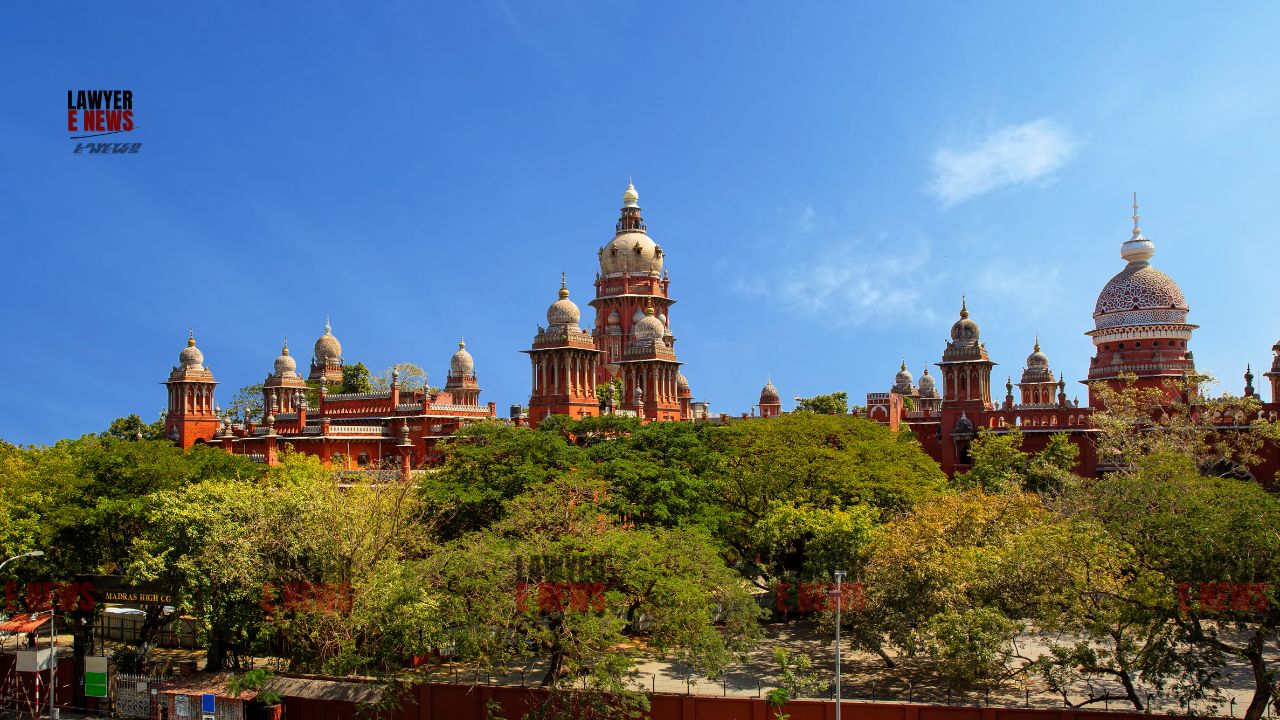-
by Admin
15 February 2026 2:36 AM



In a significant ruling delivered on September 6, 2024, the Madras High Court upheld the conviction of Kasinathan, who was sentenced to life imprisonment for the brutal murder of his mother-in-law, Gowri, and grievously injuring his wife Revathi. The court dismissed Kasinathan’s appeal, confirming the trial court's judgment that found him guilty of murder under Section 302 IPC and causing grievous hurt under Section 326 IPC.
The crime took place on August 19, 2013, in Villupuram District, Tamil Nadu. Kasinathan, enraged by familial disputes and hostility towards his mother-in-law, Gowri, entered her home armed with a Koduval (a sharp weapon) and attacked her while she was in the backyard with his wife, Revathi. He delivered fatal blows to Gowri, severely injuring her head, limbs, and torso. When Revathi attempted to intervene, she was also assaulted, sustaining multiple lacerations and fractures. The attack left Gowri dead and Revathi severely injured. Their two sons, Vishnu (PW13) and Vishwa (PW14), witnessed the entire incident.
Kasinathan was arrested, and after a detailed investigation, he was charged with murder and grievous assault. The trial court found him guilty and sentenced him to life imprisonment, prompting the appeal.
Reliability of Child Witnesses: Could the testimonies of Vishnu and Vishwa, both minors, be relied upon as the primary evidence for convicting the accused?
Dying Declaration: The defense questioned the authenticity of the dying declaration made by Revathi, pointing out discrepancies, such as the absence of her signature at the end of the declaration.
Hearsay Evidence: The defense argued that there were no direct eyewitnesses apart from the minors, and the other witnesses were hearsay, reducing the strength of the prosecution's case.
Child Witness Testimonies: The court heavily relied on the testimonies of Vishnu and Vishwa. While recognizing that evidence from child witnesses must be scrutinized with caution, the court found their statements credible and consistent with other evidence. The court ruled that the testimonies of the children, supported by forensic evidence and circumstantial details, were sufficient to prove the accused's guilt.
Justice V. Sivagnanam cited precedents to emphasize that child witness testimonies, if convincing, should not be dismissed. The court also noted that there was no substantial proof that the children were tutored, as their statements were recorded soon after the incident, leaving little opportunity for manipulation.
Dying Declaration: The defense highlighted that Revathi’s dying declaration was incomplete because it lacked her signature at the end. The court acknowledged this discrepancy but ruled that the declaration could not be dismissed entirely. However, it did not form the sole basis for the conviction.
Forensic and Medical Evidence: The court further supported its judgment with forensic evidence, noting that the bloodstains found on the clothes of the deceased and the accused were of the same blood group, strengthening the prosecution's case. Additionally, the medical reports, including the post-mortem and injury reports, corroborated the children's account of the brutal attack.
The court concluded that the evidence, including the reliable testimony of the child witnesses, medical reports, and forensic analysis, proved beyond reasonable doubt that Kasinathan was guilty of the charges. The appeal was dismissed, and the conviction and sentence by the trial court were upheld.
Date of Judgment: September 6, 2024
Kasinathan vs. The State
